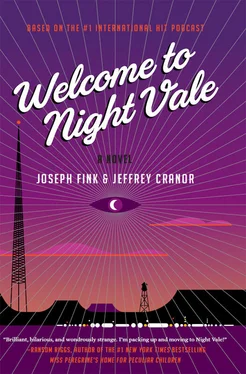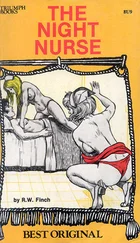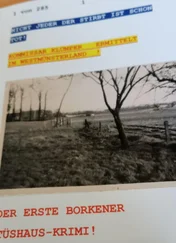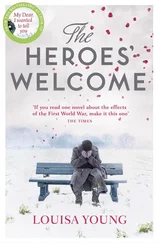Some other version of Diane was running, although this Diane wasn’t sure whether it was for exercise or to flee. She didn’t have access to the other Diane’s emotions, only her speed. She had trouble focusing with so many versions of herself in her head.
“Where is Josh?” she said, and moved at the man with her hand up. She wanted to destroy him. She had never wanted to destroy anything before. He sprang out of his chair, face red. The flies formed a furious, pulsing black cloud between her and him.
“Attacking me won’t help,” he shouted, and the flies echoed his words with their buzzing. “Now sit down, Diane Crayton.”
She did not sit down, but she didn’t move forward either. This wasn’t because of what he said but because the large black cloud of flies made her anxious. The other Diane in her head had stopped running, although she didn’t know whether this was because the exercise was over or because she had been caught.
“Josh is completely safe,” he said, sitting back down. The cloud of flies lowered with him, still staying between him and Diane. “But this town needs him.”
“You’re the mayor of this town, if you can call it a town. Why can’t you work out the problems on your own? Why would you need a fifteen-year-old boy from some other place to do your work for you?”
“This town doesn’t know that I’m mayor. Ever since the problems started, no one can remember me.” He reset himself to a milder tone, a gentler posture. “I was mayor when that man came to town, and ever since then the people of King City will regularly decide they need to elect a mayor because they don’t have one. They will go through all the motions of that: setting up the polling places, arranging candidates, talking to each other about who would be right for the job or mostly not paying attention and not talking about it. And then on the day of the election, someone involved will look at the paperwork and realize they already have a mayor. Confused and frustrated, they’ll take everything down, cancel the whole election, and go home unsatisfied. Then, a few months later, they’ll start again, having forgotten completely that I exist.”
He gestured to the cloud of flies in front of him, and they settled back down as a squirming ball in the open suitcase.
“It’s been so long since anyone could remember me at all. To be remembered is, I think, a basic human right. Not one that occurs to a person when it is there, but like a parched throat in a desert when it is gone.”
Diane didn’t care about the man’s problems. But there was one part of what he had said that interested her.
“Who do you mean by ‘that man’?”
Jackie followed Troy to a bar. She knew what it was because it had a large sign saying BAR outside. It was in a wooden building that it shared with an insurance agency. The building itself looked old and worn but also like it might have been built recently to look old and worn.
Troy went inside, and Jackie followed after.
She couldn’t see him. The long bar was full even though the working day wasn’t quite over. All men, of course. She rolled her eyes. All the booths were full too, all men, all hunched over.
There was the gurgle of a tap. The bartender, whom she couldn’t see over the line of men at the bar, was pouring a beer. Maybe for a newcomer to the bar, one who had just walked in. She headed in that direction.
Her eyes were still grappling with the change from glaring sunlight to dim bar, and so she could not see what was happening when shouting started from the back of the bar.
“You son of a bitch.”
“Say it again.”
There was the thump of a person falling over. The men at the bar were turning with interest, and she noticed something odd about them, but it was lost as the fight in the back became more violent.
“I’ll say it as many times as I want.”
A few punches. A clatter of people running into chairs. More punches. The men were starting to get up and run to the back.
“If you break anything that belongs to the establishment, you will pay,” shouted the bartender. “Cash or jail time, means the same to me.”
But he too started to run to the back.
“Gentlemen, please,” he said.
He was blond.
Blond. That was what she had noticed. All the men in the bar were blond. Her eyes started to focus in on dim shapes. She followed the last of the running men to a small open area with a pool table and jukebox in the back.
There were two men on the floor, wrestling and flailing. Their faces were red. Both of them were Troy.
“Gentlemen, take this outside at once,” said the bartender.
“Ah, let them fight,” said one of the bystanders. “What else do we all have to do out here?”
She recognized both voices. The bartender was Troy. So was the bystander.
Her vision fully adjusted. She was surrounded by an enormous circle of Troys, watching the two Troys fight in the middle. Every person in the bar was Troy.
The crowd around her swayed in empathetic motion with the fighting men. She was jostled in the wave of Troys. As she tried to squeeze herself from the crowd, the group of alike men next to her lurched left and knocked her to the floor.
They were laughing and cheering and attempted but failed to step gingerly around her tender legs.
She grunted and cursed. One of the men made a barely attentive hand gesture toward her, but otherwise they ignored her, so, with great pain and exasperation, she lifted herself to her feet and edged her way behind the moving mass of men back to the exit.
She sagged against the wooden facade of the building. She wished she had Diane again. The pain in her left arm was making it hard to think or move. She worried that pain meds would cloud her mind, and so she paced herself with them. Anyway, the pain meds the hospital had given her were just a bag of wood chips, and so she doubted their effectiveness.
A blond man with a future shiner across his right eye staggered out of the bar. He stopped near Jackie and looked down the street, cursing under his breath.
“Hey,” Jackie said, pushing off the wall with her back in hopes of not looking so weak, although her pain and the shock of meeting Troy after everything she had learned about him made her sag right back against it. Without much practice to this point in her life, she tried, clumsily, to make casual adult conversation: “You smoke?”
“No, sorry,” he said, looking at her without recognition.
“Neither do I. Don’t know why I asked. I’m sorry. My name’s Jackie. What’s your name?”
“Troy.” His eyes narrowed. “How old are you? Your parents know you’re out at a bar?”
“My dad does.”
He looked out over the empty fields and low, brittle-grassed hills to the always busy 101 and the deepening sky of late dusk behind it, rubbing the back of his head vacantly. He looked concussed, but, more than that, he looked like he knew something he didn’t want to know.
“All right, kid. I got clocked and just needed some air. Gonna head back in and—”
“What’s the deal with everyone here? Why do you all look the same? Are you all named Troy? Do you know Diane Crayton?”
She had so much to ask, like when you run into a favorite actor or author. How do you say everything you’ve wanted to say to a person who has been a big part of your life and doesn’t know you at all?
“Diane,” Troy said, frowning nervously.
“Diane Crayton. From Night Vale. She’s raising your boy Josh.”
“Oh. Well.” Troy nodded, edging toward the door. “How is she?”
“Why don’t you ask her yourself?” She let him hear the bitterness in her voice.
“Yeah,” he said, not exactly in response to what she said but just to make a sound.
Читать дальше












